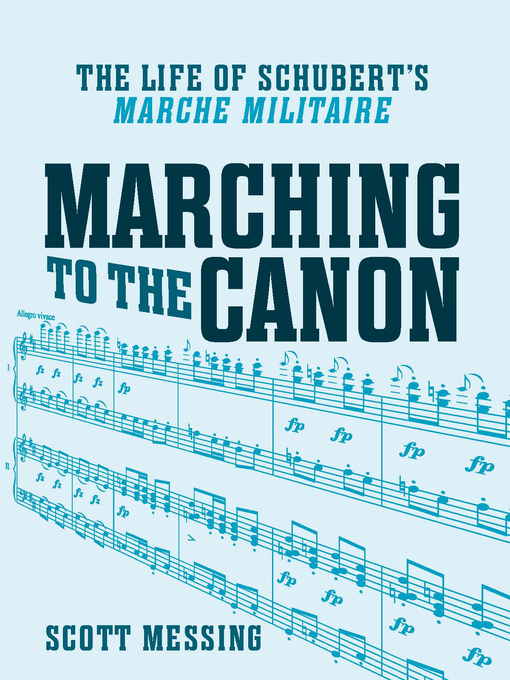Marche militaire is Franz Schubert's most recognizable and beloved instrumental work. Originally published for piano four hands in 1826, this tuneful march — Schubert's first of three military marches — was arranged, adapted, and incorporated into new incarnations over the next two centuries. Its success was due to its chameleonlike ability to cross the still-porous borders between canonic and popular repertories, creating a performance life that made deep inroads into dance, literature, and film, and inspired quotations or allusions in other music
Marching to the Canon examines the history of Schubert's storied Marche militaire from its modest beginnings as a duet published for domestic consumption to its now-ubiquitous presence. After detailing the composition, publication, and reception of the original march, the book analyzes the impact of transcriptions and arrangements for solo piano, orchestra, band, and other settings. In addition, it considers the ways the march was used symbolically, even manipulated, during the Franco-Prussian War and the two world wars, as well as the diverse creative uses of the piece by significant figures as varied as Willa Cather, Isadora Duncan, Walt Disney, and Igor Stravinsky. This study of the reception and impact of the Marche militaire offers a unique narrative illuminating the world that enshrined this remarkable score as one of the most memorable musical works of the nineteenth century.
Scott Messing is the Charles A. Dana Professor of Music at Alma College, and the author of two works available from the University of Rochester Press: Neoclassicism in Music and the two-volume Schubert in the European Imagination.
- Available now
- New eBook additions
- New kids additions
- New teen additions
- Most popular
- Try something different
- Personal Finance
- See all
- Available now
- New audiobook additions
- New kids additions
- New teen additions
- Most popular
- Try something different
- See all
- Popular Magazines
- Just Added
- Cooking & Food
- Home & Garden
- Health & Fitness
- Fashion
- News & Politics
- Hobbies & Crafts
- Celebrity
- Technology
- Cars & Motorcycles
- Family & Parenting
- Sports
- See all

